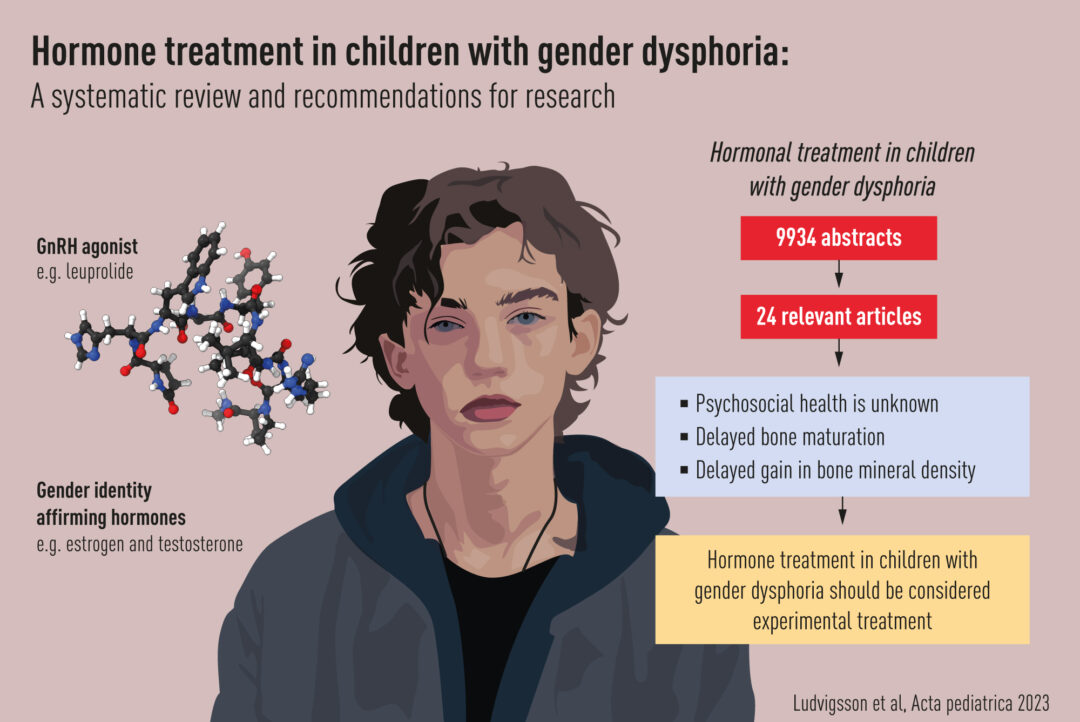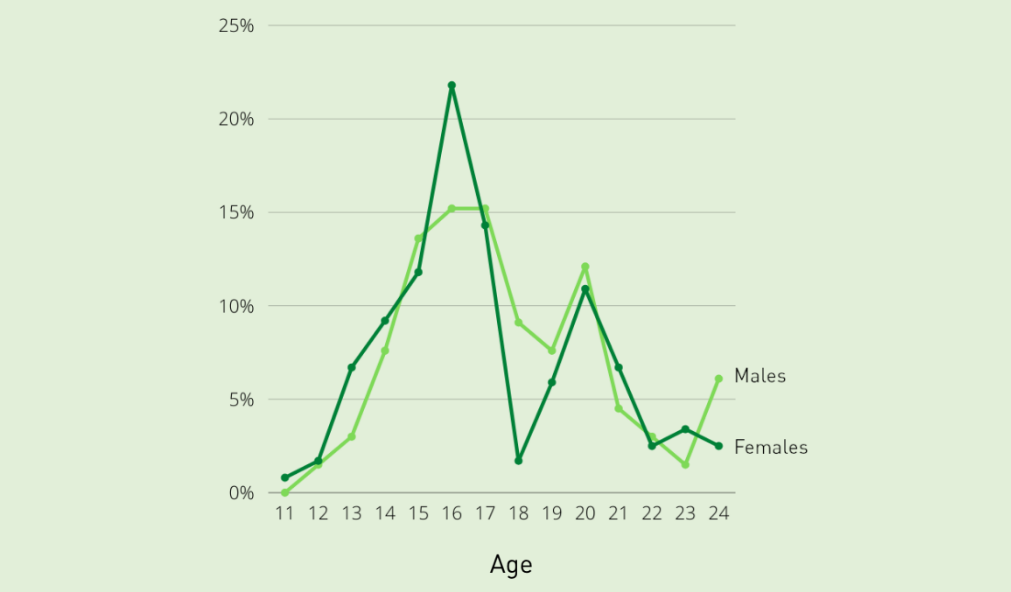Research published on 1st December 2023 (almost exactly four years after the first detransitioner conference in Manchester, England) examines the experiences of formerly transgender identifying people who have since desisted or detransitioned. Desistance is the term used to describe those who discard their transgender identity prior to any opposite-sex imitation medication, detransition is used to … Continue reading Detransition and Desistance Among Previously Trans-Identified Young Adults
Our Duty Submission in Response to NHS Consultation on Puberty Blockers
This is the Our Duty Submission in response to the NHS England Consultation on the Prescription of Puberty Blockers. NHS England consulted on its new policy for the prescription of Puberty Suppressing Hormones (also known as puberty blockers). This public consultation ran for 90 days from 3 August to 1 November 2023. The Consultation Website: … Continue reading Our Duty Submission in Response to NHS Consultation on Puberty Blockers
Current Concerns About Gender-Affirming Therapy in Adolescents
Stephen B. Levine & E. Abbruzzese Current Sexual Health Reports (2023) Cite this article Abstract Purpose of Review Results of long-term studies of adult transgender populations failed to demonstrate convincing improvements in mental health, and some studies suggest that there are treatment-associated harms. The purpose of this review is to clarify concerns about the rapid proliferation of hormonal … Continue reading Current Concerns About Gender-Affirming Therapy in Adolescents
Systematic Review of Evidence from Sweden
Hormone treatment is one of the interventions that has been used to address so-called 'gender dysphoria' in children, but there is a need for more evidence-based guidance on the safety and efficacy of such treatments. A recent systematic review by Ludvigsson et al. (2023) aimed to evaluate the current evidence on hormone treatment for children … Continue reading Systematic Review of Evidence from Sweden
ROGD: New Study based on Parent Reports
Professor Michael Bailey along with Suzanna Diaz (pseudonym) have published a new paper. This article is a reproduction of a Twitter thread by Professor Bailey. We have also produced an 'Accessible Synopsis' of the paper here. Rapid Onset Gender Dysphoria: Parent Reports on 1655 Possible Cases Rapid Onset Gender Dysphoria: Parent Reports on 1655 Possible … Continue reading ROGD: New Study based on Parent Reports
SEGM issues Rebuttal to AusPATH
The Society for Evidence-based Gender Medicine (SEGM) has issued a paper refuting the claims made by The Australian Professional Association for Trans Health (AusPATH) in its recent paper. On 26th June 2021 AusPATH renewed its commitment to what it calls 'gender affirming care', and what is really Opposite Sex Imitation Medicine (OSIM). This announcement was seized upon by … Continue reading SEGM issues Rebuttal to AusPATH
Lost Boys
About one third of adolescents falling into the trap of transgenderism are boys. In the Spring of 2021 the parents of these boys coordinated the telling of their stories.
Lost Boys – The Survey
In a series of articles for Quillette, Angus Fox describes in detail the experiences of families with boys who think they are transgender. The link to the quantitative survey mentioned in the final essay can be found at the bottom of this page. Introduction When Sons Become Daughters: Parents of Transitioning Boys Speak Out on … Continue reading Lost Boys – The Survey
The Myth of Detransition
Detransition is the process, usually social sometimes medical, that young people go through when they reject their transgender gender identity after having under gone medical treatment to imitate the opposite sex. When this happens before any medical intervention it is known as desistance. We know that desistance rates are high, about 85% in studies, and … Continue reading The Myth of Detransition
Challenging Ideas
Introduction Parents of a child who thinks they are transgender often have difficulty challenging the ideas that lie behind their child’s outlook. In the first instance, any challenge to the child’s world view is seen by them as confrontational and is likely to result in ‘push back’. Even parents who have a good relationship with … Continue reading Challenging Ideas








